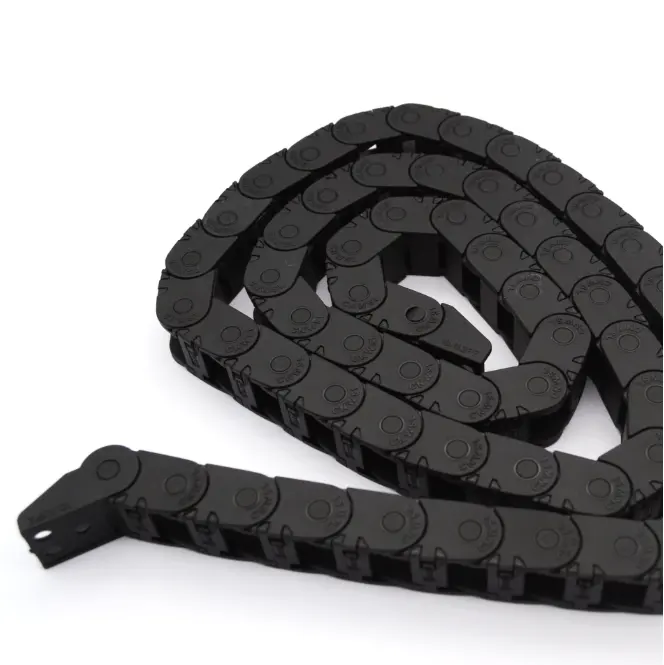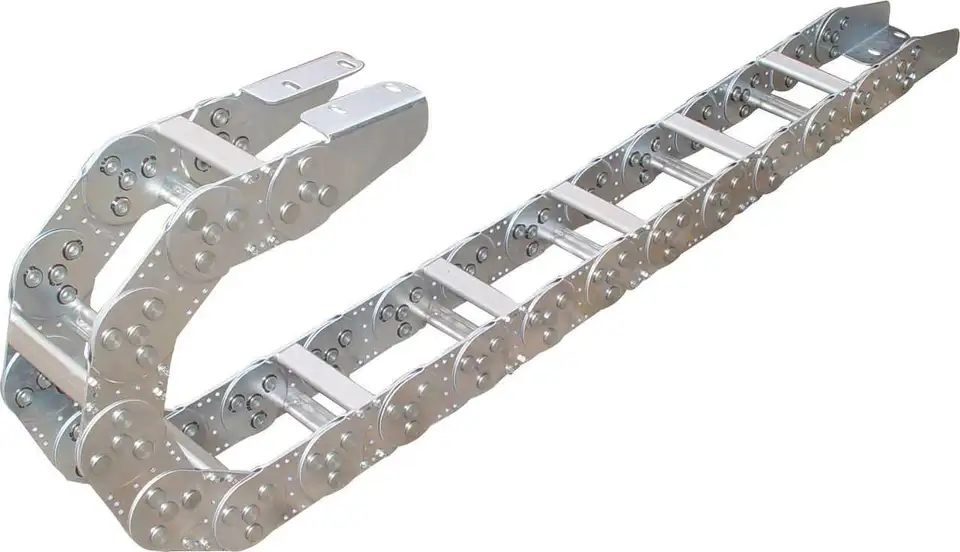Product Description
Short Pitch Precision Roller Chains
A. Our Services:
1. Any of your kind inquiry about chain would be replied within 24 hours.
2. Well-trained and experienced sales staffs will reply all your concerns in fluent English.
3. OEM services are available with us, our professional designer would make your private idea into being.
4. Protection of your sales area, ideas of design and all your private information.
5. Delivery by air mail or ship for your orders.
6. With years of manufacture and promotion experience in global market, brings you profit and great success!
B.Product Description:
| Style: | Simplex Roller Chains, Duplex Roller Chains, Triplex Roller Chains, Multiple Roller Chains |
| Chain No.: (ANSI/ISO) | 03C, 04C, 06C, 08A, 10A, 12A-~ 48A |
| Chain No.: ( ANSI ) | 15, 25,35,41,40,50 ~ 240 |
| Pitch: | 4.7625 mm ~ 76.200 mm |
C.Company show & Product Process
D. Packaging & Certificate
| Packaging Details: | Chain+Plastic Bag+Neutral Box+Wooden case+Big Carton+Steel Pallets |
| Delivery Detail: | five weeks |
E. FAQ:
1. Are you manufacturer or trade Company?
We are a factory founded in 1991 with trade team for international service.
2. What terms of payment you usually use?
T/T 30% deposit and 70% against document, Western Union, L/C at sight
3. what is your lead time for your goods?
Normally 45 days after confirmed order. 30 days could be available in low season for some items (during May to July), and 65 days during new year and hot season ( Jan to March).
4. Do you attend any Show?
We attend Hannover show in Germany, NMW in Austrilia, Canton fair, PTC, in China and many other special furniture shows.
5. Do you have any instant chat ?
| Usage: | Conveyor Chain |
|---|---|
| Material: | Alloy/Carbon Steel |
| Surface Treatment: | Electroplating |
| Feature: | Heat Resistant |
| Chain Size: | 1/2"*11/128" |
| Structure: | Roller Chain |
| Customization: |
Available
| Customized Request |
|---|

How do drag chains perform in high-precision and automated processes?
Drag chains excel in high-precision and automated processes, providing several key benefits that make them well-suited for these applications:
- Protecting Cables and Hoses: In high-precision environments, delicate cables and hoses must be protected from damage or tangling. Drag chains offer a secure housing that keeps cables organized and prevents them from being exposed to potential hazards.
- Smooth Cable Movement: Automated processes require precise and reliable cable movement. Drag chains ensure that cables and hoses move smoothly and without obstruction, reducing the risk of downtime and maintaining consistent performance.
- Reducing Friction and Wear: High-precision equipment often operates at faster speeds and with more frequent movements. Drag chains are designed to minimize friction and wear, extending the service life of cables and minimizing the need for frequent replacements.
- Flexible Cable Routing: Automated processes often involve complex cable routing requirements. Drag chains offer flexibility in cable management, allowing for custom configurations and ensuring that cables follow the precise path required by the automated machinery.
- Resistance to Contaminants: Automated processes may encounter various contaminants, such as dust, debris, or chemicals. Drag chains can be made from materials that resist these elements, protecting the cables and ensuring the machinery operates smoothly.
- Highly Durable: Drag chains are built to withstand constant use in automated processes. They are engineered to endure the demands of repetitive motion and high-precision operations without compromising performance.
- Improving Safety: By keeping cables and hoses securely contained within the drag chain, the risk of accidents or damage caused by loose cables is minimized, enhancing overall safety in the workplace.
- Customizable Designs: Drag chains can be tailored to fit specific automation setups, with options for size, length, and mounting configurations, ensuring they integrate seamlessly with the automated machinery.
With their ability to protect and manage cables, maintain smooth and reliable movement, and withstand the demands of high-precision and automated processes, drag chains play a critical role in optimizing efficiency, precision, and safety in a wide range of automated industrial applications.

Can drag chains be used in food processing or packaging industries?
Yes, drag chains can be used in food processing and packaging industries, provided they are made from food-grade materials and meet the necessary sanitary requirements. These industries often require efficient cable management solutions that can handle various cables and hoses while maintaining a hygienic environment. Here’s how drag chains are beneficial in these applications:
Hygienic Design:
Drag chains used in food processing and packaging industries are designed with materials that meet strict hygiene standards. They are made from food-grade plastics that are resistant to bacteria growth and easy to clean, ensuring that they do not contaminate the food products or packaging materials.
Cable Protection:
Drag chains protect electrical cables, pneumatic hoses, and other vital components from exposure to food particles, dust, and other contaminants. This helps in extending the life of the cables and reduces the risk of cable damage or failure, which could lead to costly downtime.
Smooth Cable Movement:
The smooth interior surface of drag chains allows for easy movement of cables and hoses, reducing friction and preventing wear and tear. This smooth movement is essential in preventing damage to cables and ensuring the reliable operation of equipment in the food processing and packaging processes.
Space Optimization:
Drag chains can be customized to fit into tight spaces and accommodate various cable sizes and types. This space-saving design is crucial in food processing and packaging facilities where floor space is often limited, and efficient use of space is necessary for optimal production flow.
Resistance to Cleaning Agents:
Drag chains used in these industries are designed to withstand frequent cleaning and sanitization processes. They are resistant to common cleaning agents and high-pressure washdowns, ensuring that the equipment remains clean and free from contaminants.
Compliance with Industry Standards:
Drag chains used in food processing and packaging industries are designed to meet industry-specific regulations and standards, such as FDA (Food and Drug Administration) guidelines, NSF (National Sanitation Foundation) certifications, and EHEDG (European Hygienic Engineering & Design Group) guidelines.
When selecting drag chains for food processing and packaging applications, it’s essential to choose products from reputable manufacturers with a proven track record in supplying cable management solutions for the food industry. Additionally, regular inspection and maintenance of drag chains are necessary to ensure their continued performance and compliance with industry regulations.

How do drag chains handle abrasive or corrosive environments?
Drag chains are designed to provide protection and guidance to cables and hoses, even in harsh and demanding environments, such as abrasive or corrosive conditions. The way drag chains handle these environments depends on the materials used, the design features, and additional protective measures.
Abrasive Environments:
In environments where abrasion is a concern, drag chains can employ materials and design features to withstand the wear and tear caused by friction and particles. Here are some considerations:
– Material Selection: Drag chains can be made from abrasion-resistant materials, such as reinforced nylon, steel-reinforced elastomers, or steel cables with plastic or rubber coatings.
– Additives: Certain additives or fillers can be incorporated into the drag chain materials to enhance their abrasion resistance properties.
– Guiding and Support: Drag chains are designed to guide and support cables and hoses, reducing their exposure to abrasive elements and minimizing potential damage.
Corrosive Environments:
For corrosive environments, drag chains must be constructed from materials that can withstand chemical exposure and prevent degradation. Here are some considerations:
– Corrosion-Resistant Materials: Drag chains can be made from materials like stainless steel or high-grade plastics that offer excellent resistance to corrosive substances.
– Coatings and Finishes: Additional coatings or finishes can be applied to the drag chain’s surface to protect against chemical attack.
– Sealing: In highly corrosive environments, drag chains may have enhanced sealing to prevent corrosive agents from entering and affecting the cables or hoses inside.
– Regular Maintenance: Proper and regular maintenance, including cleaning and inspection, can help detect and address any signs of corrosion early, prolonging the drag chain’s lifespan.
When choosing a drag chain for abrasive or corrosive environments, it’s crucial to consider the specific conditions of the application and communicate these requirements to the drag chain manufacturer or supplier. They can recommend suitable materials and designs to ensure the drag chain performs effectively and protects the cables and hoses from the harsh environment.


editor by CX 2023-11-13